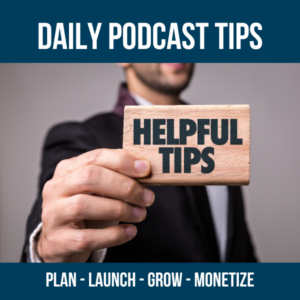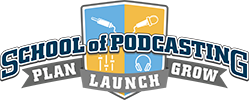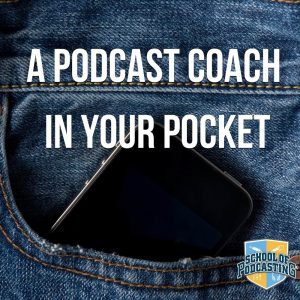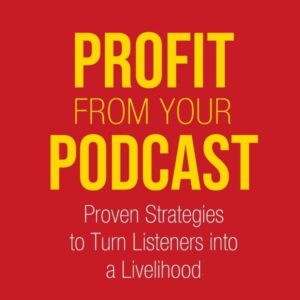
Today we are going to talk about connecting with your audience. This show is based on my opinion. If your opinion varies I would love to hear it.
Podcasting is a time shifted conversation either TO your audience, or one that they can eaves drop on and enjoy the chemistry of your podcast. I was approached by two people this week who have made it past their 10th episode, they both do solo podcasts, and both are disappointed at their audience size and interactivity. When I listened to both of their podcasts I found something immediately. They were both READING, no OBVIOUSLY reading their podcast. I was listening to the one podcast through some speakers and my wife came in and said, “He's obviously reading that.” For me unless this is an audio book that you picked up for free at audibletrial.com/dave I don't want to listen to someone read to me.
If you think about it, if you go to a play the actors are speaking TO each other and the play is directed AT the audience. For me, the podcast should be directed TO your audience.
Ask yourself this question, at the end of the podcast what should your audience GET? What do you want them to DO with the information they received? How do you want the information to MOVE people (think, laugh, groan).
Your Podcasting Homework
Take the podcast that you listen to and ask yourself, “Why do I listen to this?” Let me know in the comments below or use the button on the right hand of the screen to leave a message.
Do you listen to a podcast that the host is (obviously) reading? Why does this work (or not) for you?
Why Reading Your Podcast May Not Work
If you use a service like transcribeme.com you will find that you do not talk like you write, and you do not write like you talk. Consequently, it's very hard to read something without it sounding like you are reading (unless you can write like you talk). I would recommend reading your script multiple times to get familiar with the content, and then talk into the microphone like you're talking to ONE person.
What is Good Podcast Content?
Content you can get any place else. The No Agenda Show provides great insights into how the media covers the top stories of the week. They have unscripted show, they have a fun chemistry with each other, and they do address their audience.
John and Marcus of the WordPress Plugins A to Z show have an unscripted show where they do a service for their audience. That service is they wade through the THOUSANDS of plugins to find the good ones. While they are explaining the plugins to each other, they do occasionally talk directly to their audience.
In both cases, I'm sure these podcasting teams have an outline of the topics they are going to cover. Here are the notes I used for this podcast:
Being Yourself
Be Yourself
Influence is lost if they meet you
Podcasters Roundtable
Talking At vs To
The teaching item tell them, tell them, tell them
Don't forget why
Explain how they will benefit, and WHY
I know what I wanted to say, and I pressed record and started to talk to you about these topics.
I understand that not everyone has the gift of gab, and reading your podcast may be the only way that you can do it. If this is the case, you're not wrong. I would recommend you write it like you talk, and be sure to talk TO your audience and not AT them.
You have to be able to podcast for free for awhile because it's gonna take some time (depending on how hard to market your podcast). It's going to take six months to a year to really build that audience. Make sure that you're talking to your audience and not at them, not at them. I'll give you an example, if we go back to a sermon example, the church I attend to now, at the end of – The reason I like this church, the pastor doesn't call them sermons, he calls them teachings and he talks very normal, for lack of better phrase. He talks just like you and I talk, and at the end of the sermon he asks, did you get anything out of this today? And maybe that's something we should all be asking ourselves at the end of the podcast, Did you get anything out of this podcast?
At the end of the podcast if your audience is asking, what am I supposed to do with this? Or the podcast doesn't really do anything for me.
Reverse Engineer Your Podcast
I always say, look at the podcasts you listen to, and then reverse engineer them and ask, why do I like this podcast? And I'll give you an example of one where people aren't talking to me, but I still really like the podcast and it's a podcast called Word Press Plugins A to Z. They're not talking to their audience, but they do occasionally address them because most of the time Marcus is talking to John and John is talking to Marcus, and then they'll say, “And if you are doing this, you're probably going to like this,” and so they occasionally talk TO their audience.
How to Sound Like You're Not Reading – Don't Read
I do a podcast for a company where they send me a script and in theory, I could read that and as much as I try to add voice inflection and I tried to add dramatic pauses, I'm pretty sure it still sounds like I'm reading the information. So what I do is I read they're script three times and I try to get really familiar with the topic and what they're trying to do. Then I talk to the audience making sure I cover all the points in the document.
When is it OK to Read Your Podcast
I realize that “just talking into a microphone” isn't the easiest skill to master. I personally have a stammer (this is where my mouth starts before the completed thought starts coming out of my mouth before I've finished the thought). For better or for worse, this is “Me” (and goes back to “being yourself”). I occasionally listen and cut out some of my stammering. I guess if I had a distracting delivery method (for example maybe I stutter, but I don't if I read) I could see reading your podcast. The bottom line is it is OK to read your podcast when it sounds like you're not reading your podcast.
Quick Tips for Growing Your Podcast Audience
Update your about page on your website so a visitor can see how they will benefit from listening to your podcast. Then put a paragraph about you.
Add a link to your podcast in your email signature
Interviews are the easiest way to build your audience as your guest will more than likely have a built in audience. Be sure when you ask them for an interview to mention that you expect a link to the finished interview from their website.
Figure out who your audience is, go to where they are, make friends with them, THEN tell them about your podcast.
Mentioned On this Episode
WordPress Plugins A To Z Podcast
No Agenda Show Podcast
Keith and the Girl Podcast
[easyazon-link asin=”159555503X”]Platform: Get Noticed in a Noisy World[/easyazon-link] Book





I agree with the concept of “Don’t read your podcast” for the most part. I definitely don’t read mine. There was one podcast I found recently that sounded interesting so I subscribed, but after one episode I unsubscribed because it was just a guy reading (and there were about 2 minutes of commercials in the 7-minute podcast).
One exception to this (for me) – The Headlines at TechCrunch. This is a 7 minute podcast that comes out each weekday, and is read by some woman who I have no idea who she is. The reason I can listen to this one being read is because it is more like “news” – stories in various categories (but all tech-related) that I am interested in. I listen not to engage in any kind of dialogue or relationship with the podcaster, just merely to get information. It seems to work for this one.
Thanks for this insightful, i enjoyed reading through.
Dave,
I really appreciated this podcast and all the great information. Everything you said was exactly what I was having difficulty with on my podcast. I could have made a list prior to listening to this podcast and you would have hit every item on my list. The fact you have genuine insight in the process and the pitfalls of podcasting is evident.
Thanks again. You helped me to see there is hope for improvement in my podcast.
Nope, I’m a reader.
Being on my own and wanting to keep it snappy, for me the bulk of the effort goes into writing.
I recently had one of my co-hosts tell me that she didn’t want to read a script. I fully understand that she wants a feeling of spontaneity, but when you’re focusing on topics that cover history, some stuff isn’t going to be spontaneous. However, the topics that we’re covering, there’s a LOT of info about them. We cover a large portion of pop culture – movies, TV shows, video games – and there is a LOT of information that’s available for each topic that we cover.
I’ve written “scripts”, with information that I want to cover. For example, in my first episode, I covered the Transformers cartoon show from the 80’s. I wanted to cover the voice actors, and mention some of the tie-ins between them and other shows, to show the prolific coverage and talent of the aforementioned actors.
One of the later co-hosts felt that she didn’t want to have these notes and discuss many of these topics, because she wanted it to be free-form. Left to her devices, the episodes she wanted to cover have become more of “I remember this, and I loved this episode of the TV show”, or “I really liked that game,” because she didn’t have any of the material I wanted to cover, or that our listeners wanted to hear. I had to come back and touch on the points that I wanted to make because my co-host didn’t put the time in for research and didn’t want to use an outline.
I understand it’s difficult when someone hands you a lot of information and the feel is that you HAVE to read it – but if there are key points that are written in to the outline/script that you feel you can’t cover because you don’t want to feel that you’re reading it, perhaps you need to prepare more. Take the information and make it your own. Read it and rewrite it in your own mind so that you’re thinking about what you want to say, and don’t be afraid to speak up and interject with your own information and your own point of view.